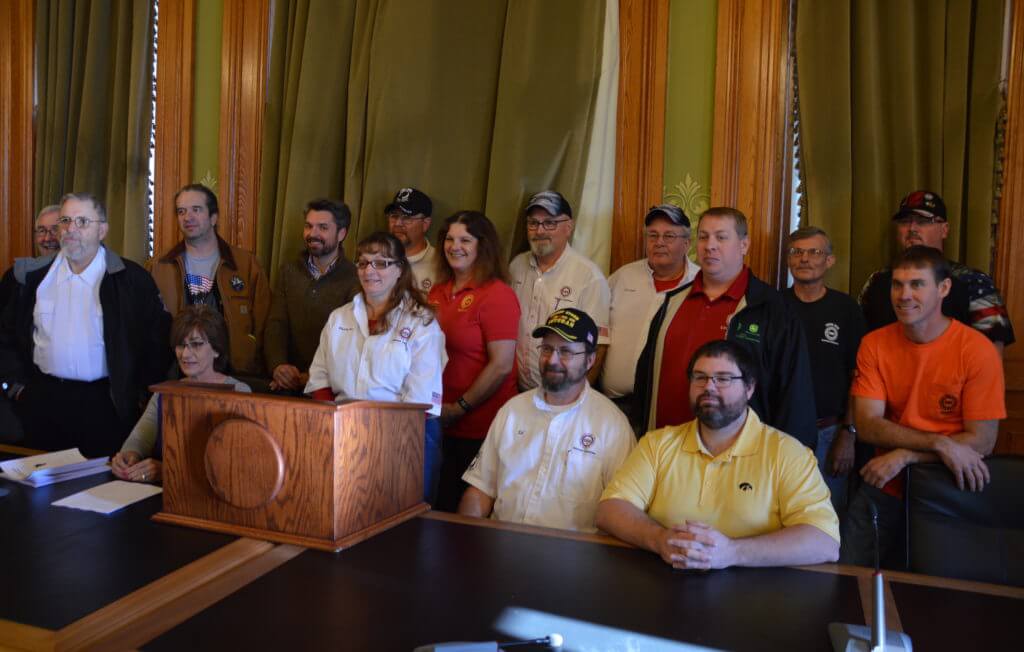
If you weaken collective bargaining laws, you hurt Iowa veterans.
That was the message from a group of labor union members who are veterans that met at the Statehouse this week to lobby legislators. Although they have yet to unveil their plans, many fear the new Republican majorities will make sweeping changes to weaken Iowa’s Chapter 20, the collective bargaining law. That would deny public workers – many of whom are veterans – a voice in the process.
“Politicians love to talk about how much they care about veterans,” said Will Fischer, the executive director of the AFL-CIO’s Union Veterans Council. “But the rhetoric that we hear from these folks don’t always match their actions when they’re here in this building. You can’t call yourself pro-veteran if you’re anti-worker … The veteran class and the working class is one and the same.”
21% of veterans work in the public sector, the highest employment rate of any industry for veterans. 30% of the 2nd Iraq War veterans work there, as well as 36% of veterans with a service-connected disability. Some of this is in part thanks to federal incentives for the public sector to employ them.
“There is a call to service that drives people into recruiter’s offices every single day,” explained Fisher. “That same drive gets a lot of people, once they get out of service, to continue their service at a state level, a county level, a city level.”
Any changes to how public workers are paid or what their healthcare benefits are would disproportionately impact veterans.
“I truly believe the citizens of Iowa want our veterans taken care of, before tax breaks are given to the people who are already warm, well-fed and comfortable,” said Dan White, a UAW member who works at the John Deere plant in Dubuque.

Republicans are expected to take aim at provisions in Iowa’s collective bargaining law that allow for a fair bargaining process between employers and employees. The negotiations will likely get tipped strongly in favor of management.
“Such legislation strikes at the core of what veterans are all about: protecting the right of citizens to voice their concerns and have a say in their future,” noted AFSCME Council 61 president Danny Homan.
Wednesday was Veteran’s Day at the Statehouse, with many veterans organizations on hand to advocate for various issues. Several dozen union veterans got together for the group’s press conference before heading out to lobby their individual members.
But while many legislators took the chance to get photos with the veterans on hand, the union members warned that simple words of support weren’t enough.
“Does anyone think that a standing ovation at an Iowa Hawkeyes game is going to help any veteran pay their mortgage?” asked Fisher. “Is a yellow ribbon magnet on their car going to help any veteran go to a grocery store? No, what those people need is access to gainful employment. To a career. When you have people who work day in and day out to deny people that, they’re not pro-veteran.”
AFSCME, which represents many of the state, county and city employees, urged their members to keep up the pressure on Republican lawmakers who are considering collective bargaining changes.
“I ask my fellow veterans, contact your legislators in this Statehouse, a building that you were charged with protecting and defending,” Homan said. “Tell them to protect veterans and working family issues like collective bargaining … By talking with your state senators and representatives you can make a difference by making legislators understand that the laws like collective bargaining that protect the rights of workers also help veterans.”
by Pat Rynard
Posted 1/19/17